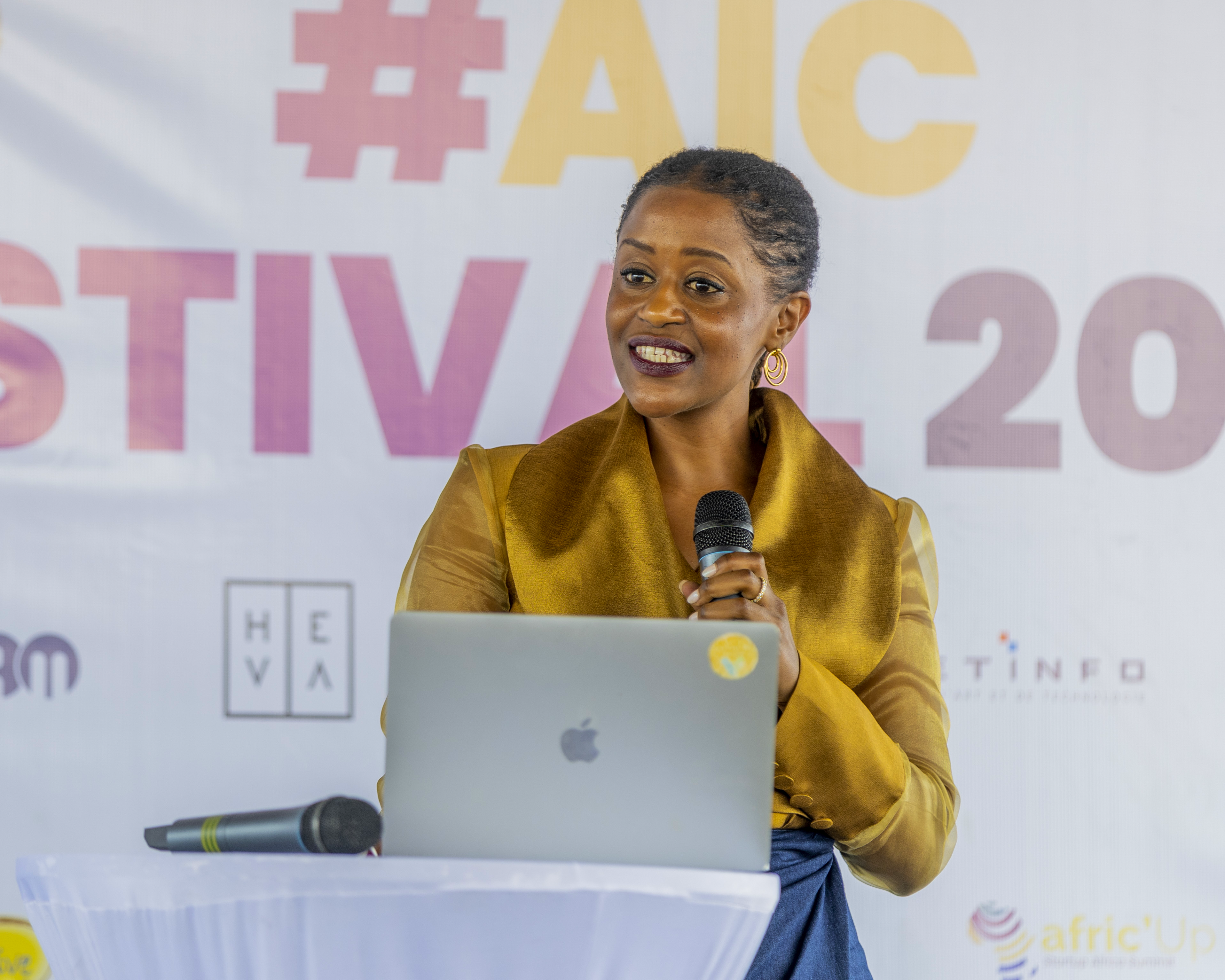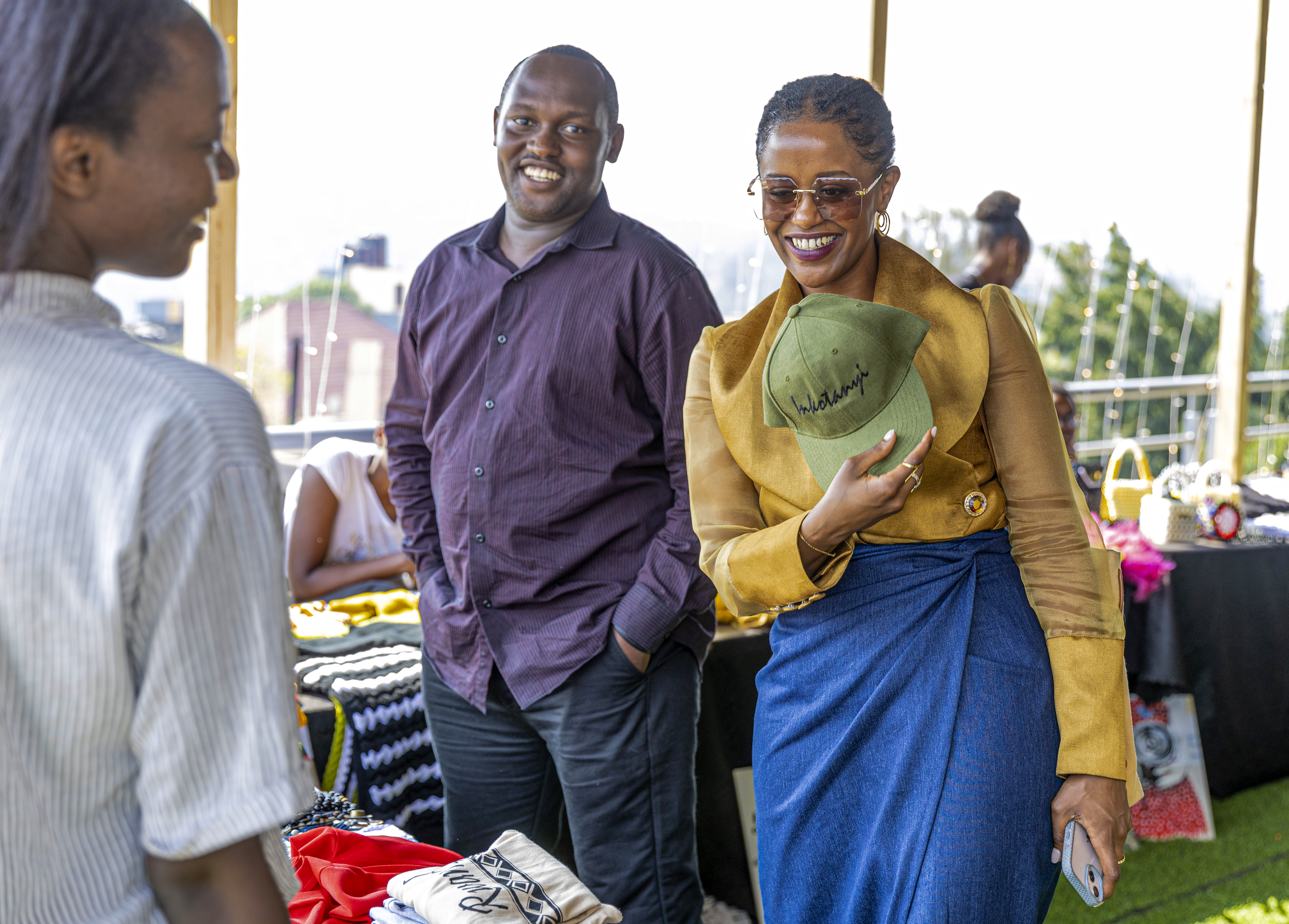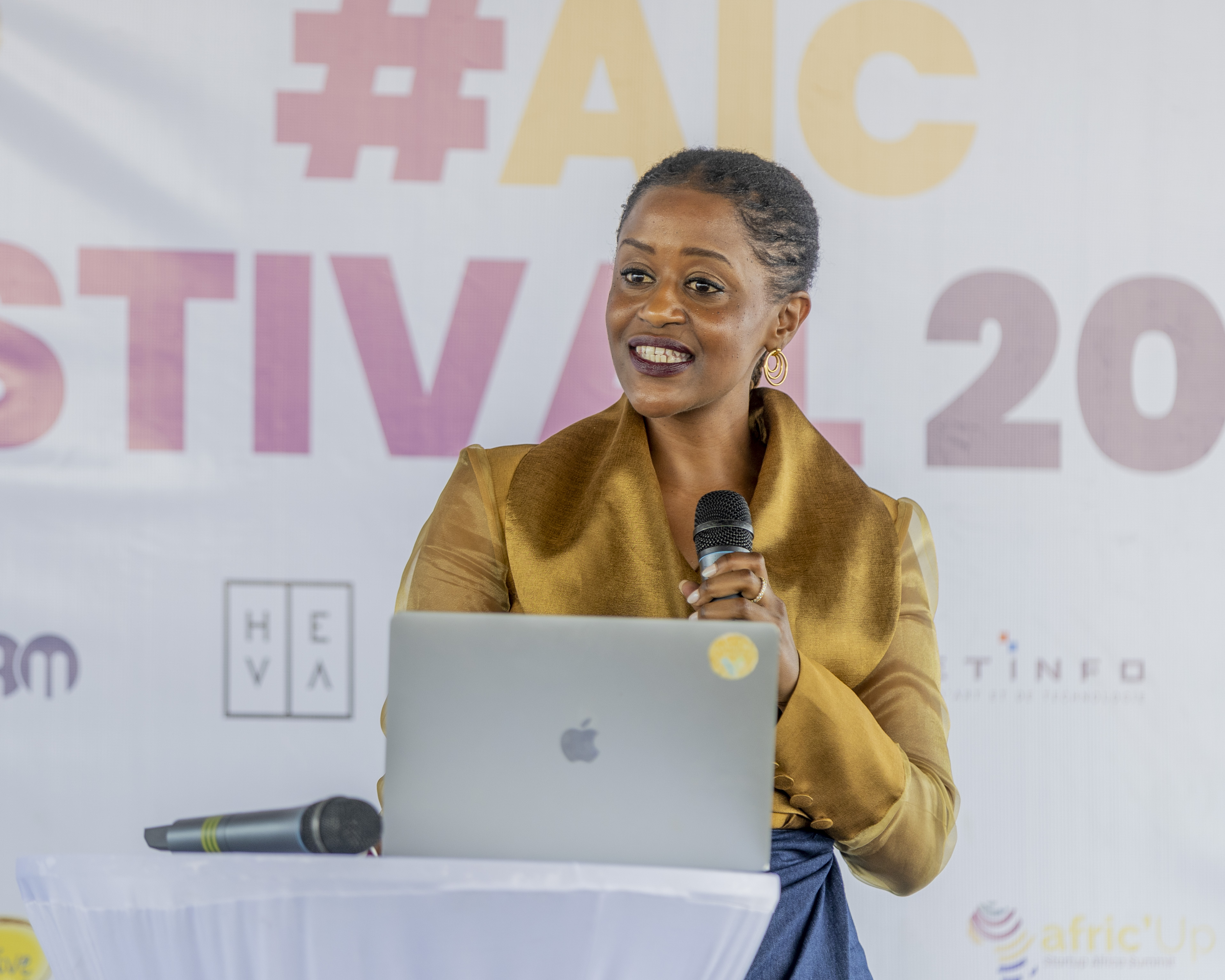Rwandan Artist Malaika Uwamahoro urges stakeholders during the AIC festival to collaborate and co-create with artists with much less bureaucracy and to follow through on commitments that are meant to bridge gaps for creatives in Rwanda.
The AIC 2023 Festival, organized by Africa in Colors, gathered different continent individuals from the creative industries. It brought together pioneers of the tech industry and culture, entrepreneurs, decision-makers, investors, and innovators.
The conference allows artists to learn about how to tackle the challenges they face in the industry. It is also an opportunity for creatives to learn about the policies surrounding art, what the government is interested in, and how they can support creatives in Rwanda.
During an interview with the well-known Rwandan artist, she elaborated on some of the challenges artists she herself faces in the industry. Uwamahoro stated that having access to studios or producers who are open and willing to collaborate with artists to benefit in the long run is a challenge.
She said, “I think a lot of times when I’m going into a studio, it’s more about like what can you do in the short term? As opposed to having a collaborative spirit where we understand that there are things that we can achieve in the long run and things that can take us on tour.”

The artist urges this is an area that needs attention. Uwamahoro also stated that another challenge is the distribution services that are rarely available to Rwandan artists.
She said, “I think that a lot of the distribution services are based in the U.S. or based in places that are not Rwanda. It makes it really difficult for our art to be reached and for people like me to distribute my own art and to gain money from that when it comes to putting our art on digital platforms.”
The creative industry is plagued with many weaknesses and gaps. According to the industry players present during the festival, there are insufficient policies and laws in the creative industry sector and the inexistence of strategies for promoting the creative industry sector in Rwanda. Governments do not really show the necessary attention and support by enacting laws and executing them to keep the industry in good shape.
It is not only limited to that but there are also challenges such as insufficient funds from financial institutions as this sector is still neglected, gaps and weak enforcement of Rwanda’s intellectual property rights, working in a scattered manner without structure, inconsistent product standardization, Insufficient market information and dissemination and low level of investment of Rwandans in creative and innovation sector.

The ‘Lady of the Nil’ Actress said that all these challenges need to be paid attention to. She urged stakeholders to be fully committed to finding solutions that are both beneficial for countries and for creatives themselves.
“I think that there’s a lot of bureaucracy when it comes to stakeholders. There are so many delays, which can really make it hard for artists to keep their stamina. They say we’ll support you, but then it takes two months or three months or four months,” she said.
“So really having less bureaucracy and committed people who work in these spaces can close the gaps and make it a little bit easier for artists to be able to collaborate with you.”
The nominated artist in the Best Solo Performance category at the 2019 VIV Award for her Miracle in Rwanda performance, believes that art can really play a huge role in the social economic development of Rwanda. She advises young creatives to monetize and find ways in which they can profit from their art.
She said, “Creatives is that find out what it takes to be official, to become official. Don’t just do this for fun. You can do this for fun. It’s a very, very fun place to be in the art world. Find a way where you can, you know, make a living out of it. You can make a career out of it. Really practice to be perfect. Or close to perfect.”


